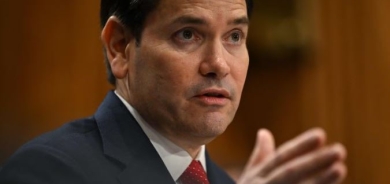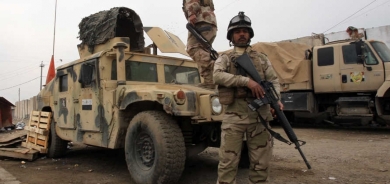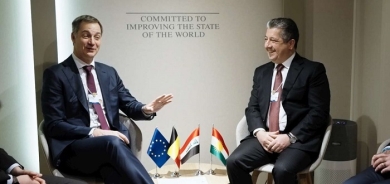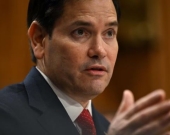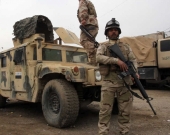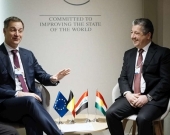Iran backs Iraqi PM replacement Haidar al-Abadi

Ali Shamkhani, secretary and representative of supreme leader Ayatollah Ali Khamenei on Iran's Supreme National Security Council, made the remarks at a meeting of Iranian ambassadors in Tehran, the Fars and Mehr news agencies said.
"The framework provided by the Iraqi constitution stipulates that the prime minister has been chosen by the majority group in the parliament," Shamkhani said.
In an apparent message to Maliki, Shamkhani invited "all Iraqi factions to yield to the rule of law and unite toward their national interests ... at a sensitive time" when the country is facing foreign threats, Reuters news agency reported.
The statement was the first official signal that Maliki no longer enjoys the support of his fellow Shiite leaders and politicians in Tehran to stay on as head of government in Baghdad.
Iranian officials had said recently that Iran believed Maliki was no longer able to hold his country together and that it was looking for an alternative leader to combat a Sunni Islamist insurgency.
Arabs welcome Abadi nomination
Arab League chief Nabil al-Arabi backed the nomination of Abadi, joining an international chorus of approval for the sidelining of Maliki.
Arabi "welcomed Iraqi President Fuad Masum's tasking of Haidar al-Abadi to form a new government," a statement said.
Inclusive government
Earlier on Tuesday, U.S. Secretary of State John Kerry urged al-Abadi to quickly form an inclusive government, while ruling out sending U.S. combat troops to the country.
“We are urging him to form a new cabinet as swiftly as possible and the US stands ready to support a new and inclusive Iraqi government and particularly its fight against ISIS,” he said.
“There will be no reintroduction of American combat forces into Iraq. This is a fight that Iraqis need to join on behalf of Iraq,” he added.
Kerry’s comments in Sydney follow a statement from President Barack Obama that Iraq had taken “a promising step forward” in designating Haider al-Abadi as its new prime minister.
The Secretary of State also said that the United States and Australia agreed to take concerns about the threat posed by militant foreign fighters in Syria, Iraq and elsewhere to the United Nations.
“We intend to join together in order to bring this to the United Nations meeting this month and put it on the agenda in a way that will elicit support from the source countries as well as those countries of concern,” Kerry said after joint security talks.
The issue of foreigners traveling to conflicts to join militants from the Islamic State of Iraq and Syria was discussed between U.S. and Australian officials in Sydney, spurred by images of a Sydney-raised boy holding the severed head of soldier in Syria.
Kerry said Australia and the U.S. had agreed to “work together to assemble a compendium of the best practices in the world together regarding those foreign fighters.”
EU meeting on Iraq
Also on Tuesday, the European Commission boosted aid to war-torn Iraq by five million euros but warned that finding access to desperate civilians, not funding, was the most urgent problem.
“In the case of Iraq, it is less a problem of money than a problem of access,” said EU Humanitarian Aid Commissioner Kristlina Georgieva as she announced the increase in EU aid to Iraq, which brings the total from Brussels to 17 million euros ($22.8 million) for the year.
“This is to help hundreds of thousands of Iraqis, including minority groups displaced on the mountains of Sinjar,” Georgieva said in reference to the desperate civilians who had been besieged by militants on a mountain in northern Iraq.
Georgieva said the Iraq crisis was the most urgent problem hitting the planet, despite a multitude of emergencies unfurling at a “magnitude not known since the great wars in Europe”.
Italy and France have called for bolder EU action on Iraq, with French Foreign Minister Laurent Fabius making a forceful call that colleagues cut short vacations to decide measures, including military ones, to aid Kurdish Iraqis fighting off the Islamic State onslaught.
Al Arabiya


